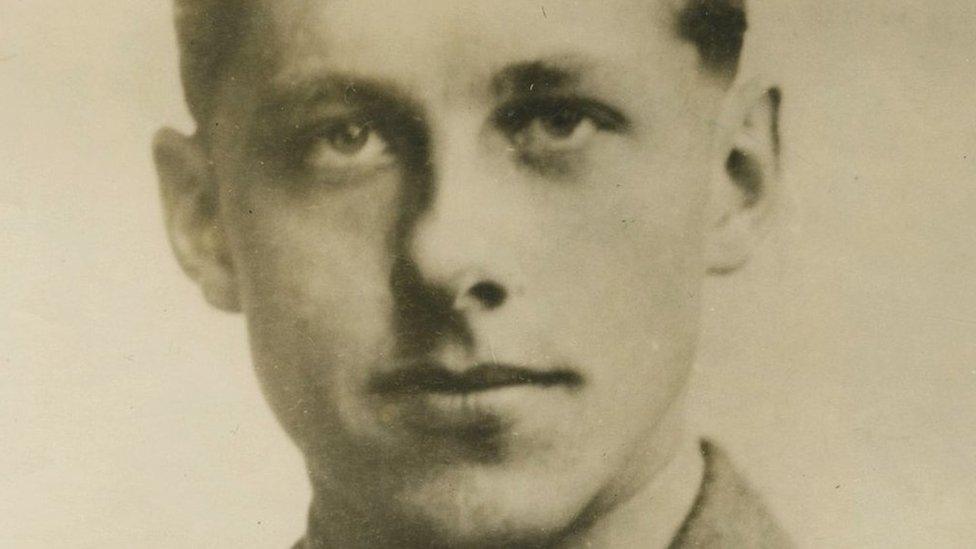Korean War crosses receives blessing from Bishop of Gloucester
- Published
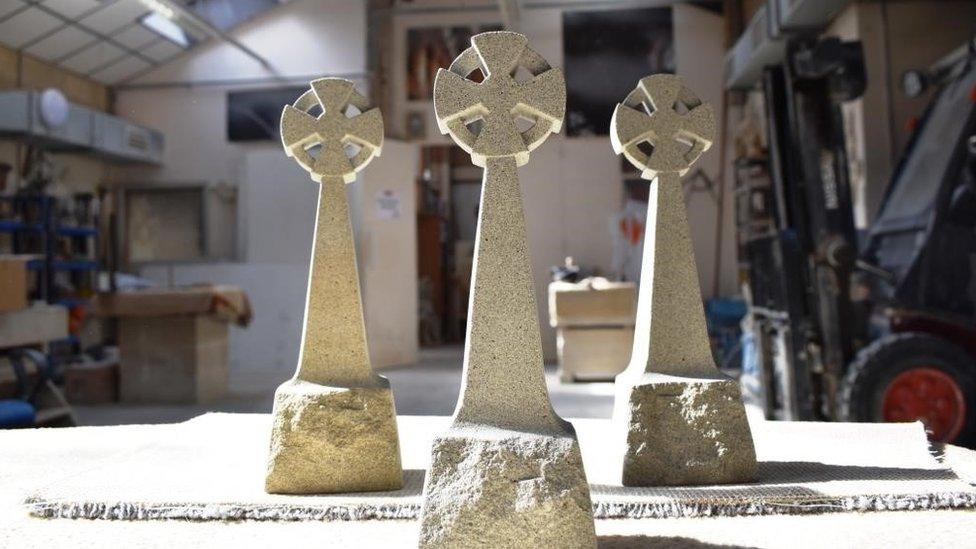
The replicas of the Carne Cross have been carved by Gloucester Cathedral stonemason Wieslaw Szod, using sandstone from the Forest of Dean
Three replicas of a cross carved by a prisoner in the Korean War have been blessed by the Bishop of Gloucester.
The original - known as the Carne Cross - was made by Lt Col James Power Carne of the Gloucestershire Regiment and is housed in Gloucester Cathedral.
One replica will go on display in the cathedral, one at the Soldiers of Gloucestershire Museum, and one will be sent to Paju in South Korea.
They were blessed at Gloucester Cathedral on Sunday,
The ceremony was held 70 years on from the Battle of Imjin River, where Col Carne led about 700 men of the Gloucestershire Regiment against more than 10,000 Chinese, between 22 and 25 April 1951, on what has now become known as Gloster Hill.
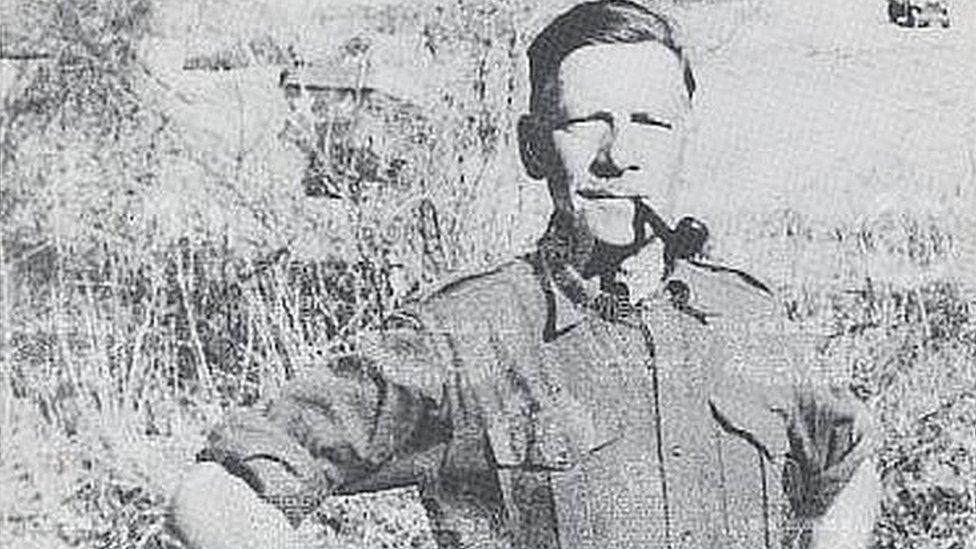
Col James Carne was awarded the Victoria Cross for his heroics during the Battle of Imjin River
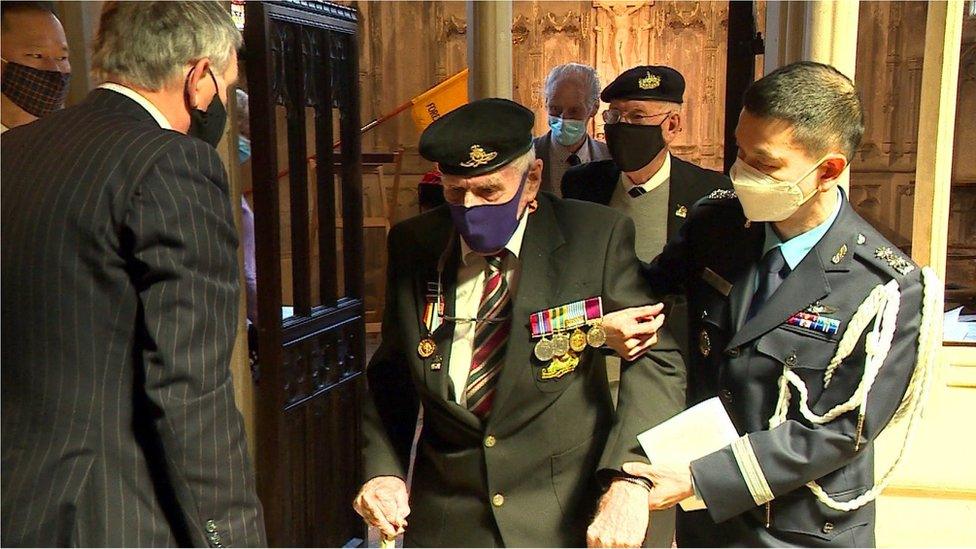
Korean veteran Tommy Clough being helped after the ceremony at Gloucester Cathedral by a representative from the South Korean Embassy
It allowed UN forces time to retreat to defensive positions north of Seoul and led to the regiment gaining the nickname The Glorious Glosters.
Col Carne was eventually captured and while he was held, he carved a five-inch-tall (13cm) Celtic cross out of volcanic rock using, it is believed, just a nail.
Trustee of the Soldiers of Gloucestershire Museum, Lt Col Tony Ayres, said the original cross was moved from an alcove in the cathedral to its treasury about four years ago when "it became clear it was now a high value artefact".
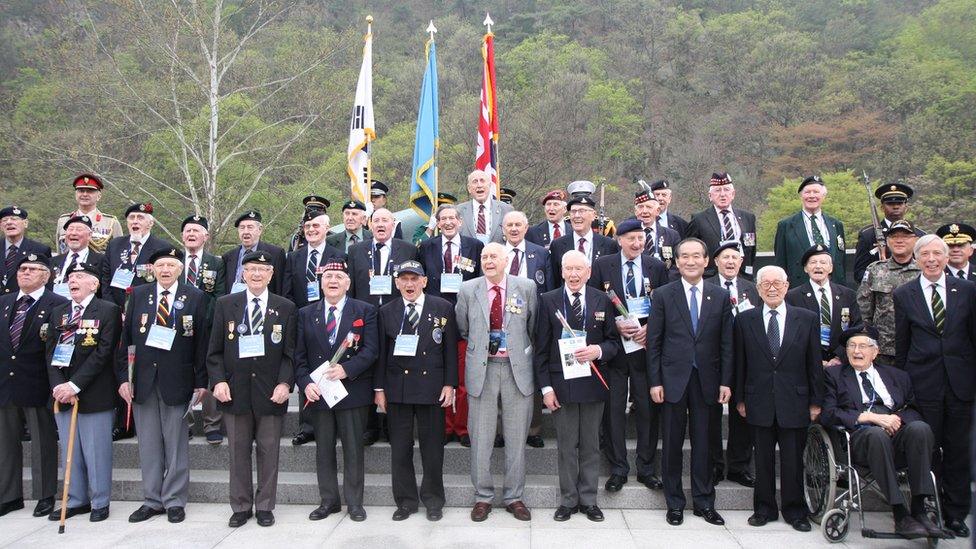
Veterans gathered at Gloster Hill on the 65th anniversary of the Battle of Imjin River in 2016
"The cathedral wanted a replica to put back in the alcove, and asked if we wanted a replica made for the museum," he said.
"We also said we wanted another replica to send out to the city of Paju, which is the city that now sits around the battlefield.
"It really epitomises, in terms of an artefact or symbol, the Battle of Imjin River and the price paid by the POWs [prisoners of war]. It was a major turning point in the war. The cross represents Col Carne, it represents the regiment, it represents that key point in history."
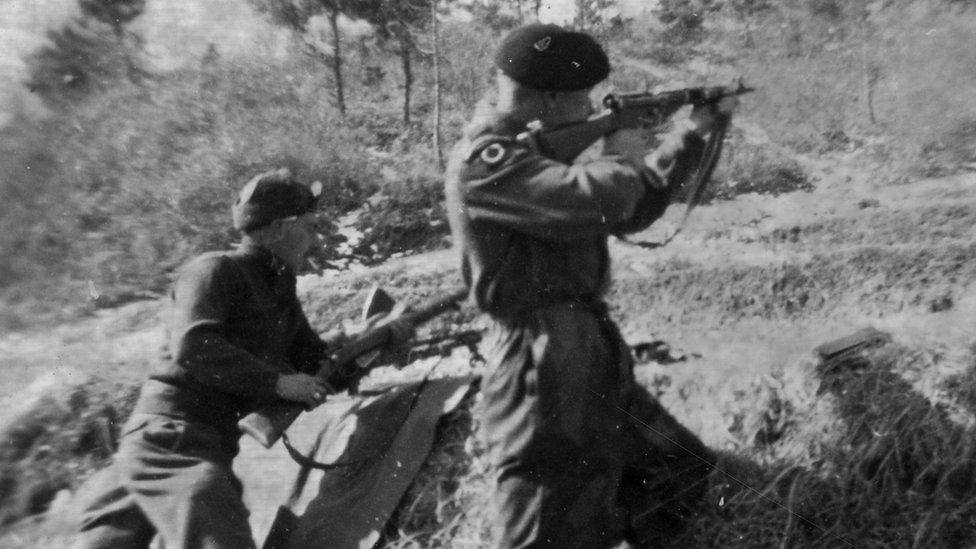
The Gloucestershire Regiment earned the nickname the Glorious Glosters during the Battle of Imjin River in April 1951
Cathedral stonemason Wieslaw Szod said it was "an honour" to have carved the replicas.
"[Col Carne] made a great job, according to the conditions he was in, in a prison, using very basic tools," he said.

Follow BBC West on Facebook, external, Twitter, external and Instagram, external. Send your story ideas to: bristol@bbc.co.uk , external
Related topics
- Published13 April 2016
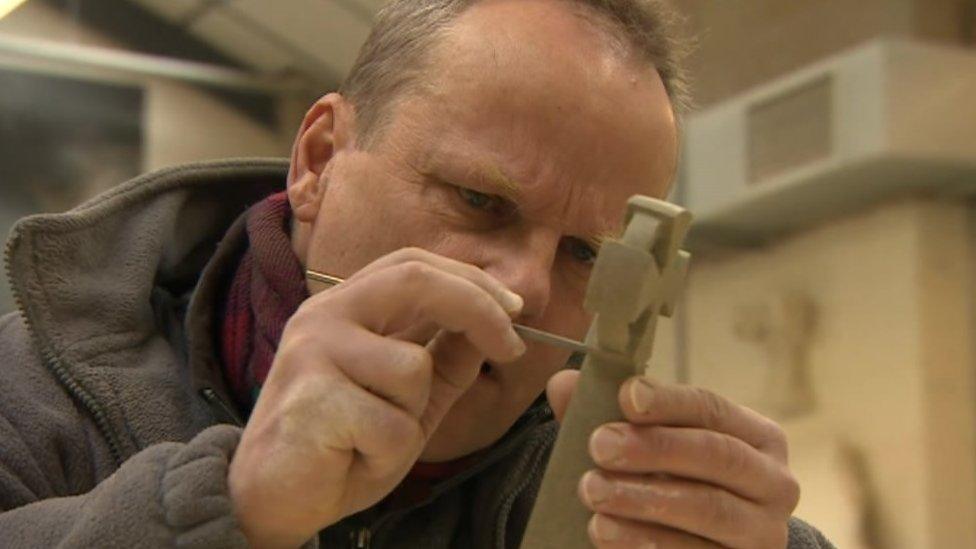
- Published4 July 2015
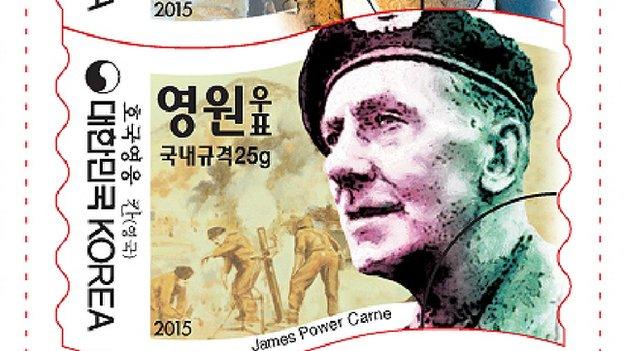
- Published24 April 2011
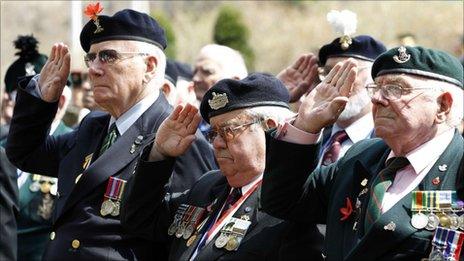
- Published21 April 2011
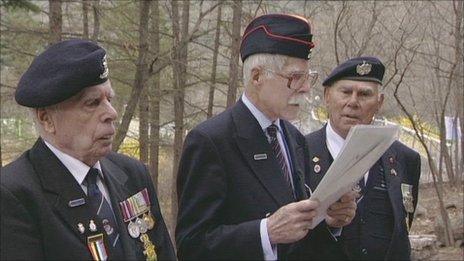
- Published20 April 2011
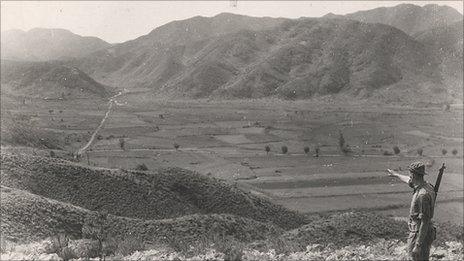
- Published18 April 2011
- Published21 April 2021

- Published18 February 2021
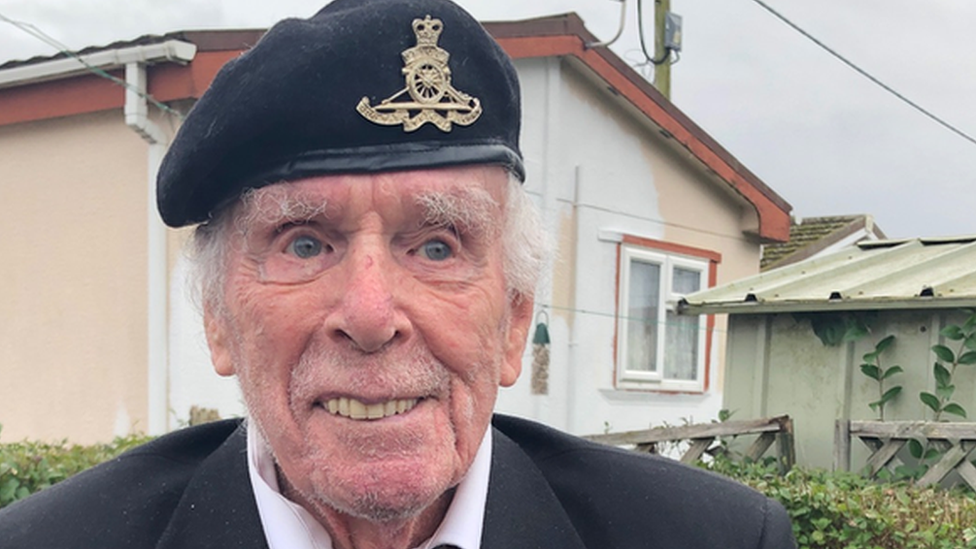
- Published17 February 2021
